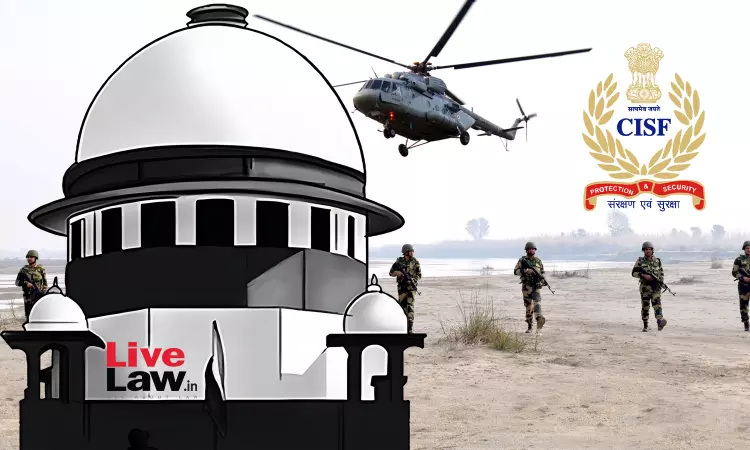All CISF Personnel Entitled To HRA If They Aren't Provided Accommodation : Supreme Court
Yash Mittal
2 March 2024 12:24 PM IST

Next Story
2 March 2024 12:24 PM IST
The Supreme Court has endorsed a judgment passed by the Delhi High Court which held that Central Industrial Security Force (“CISF”) personnel are entitled to receive House Rent Allowances (“HRA”) from the Union Government as provided to other paramilitary forces.A bench comprising Justices Hrishikesh Roy and Prashant Kumar Mishra dismissed the appeal filed by the Union of India...
